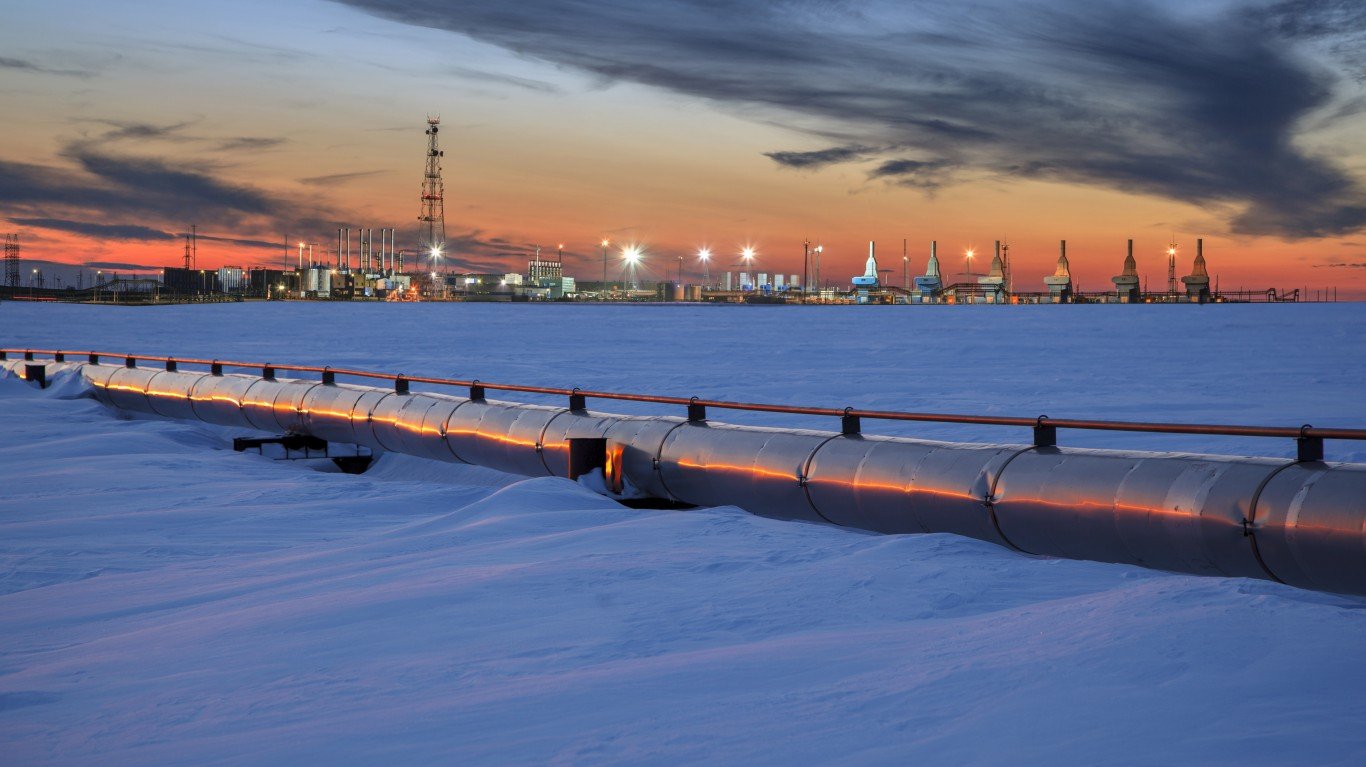

It has been said that demography is destiny. In some cases, geography is destiny, too. Since Russia invaded Ukraine on Feb. 24, 2022, the six countries most dependent on Russian oil all voted against or abstained from a U.N. resolution condemning the attack. All of the nations are either former Soviet Union republics or share a border with Russia. (Here’s a look at the recent military history of every former Soviet republic.)
To determine the countries that are most dependent on Russian oil, 24/7 Wall St. reviewed data on oil imports from the Observatory of Economic Complexity, an online data visualization and distribution platform, and oil production from the U.S. Energy Information Administration. Countries were ranked based on the total value of imports of crude and refined oil from Russia as a percentage of all crude and refined oil imports and domestic oil production in 2020.
Some of the nations that rely on Russian energy sources lack resources of their own. If they do possess resources, they depend on Russia to help develop and process them. (And these are Ukraine’s leading trading partners.)
The central Asian nations of Tajikistan and Kyrgyzstan, both former Soviet republics, send migrant laborers to Russia to work in that country’s energy sector. The remittances these workers send back to their families are crucial to the economic health of those countries.
Nations that have been the most critical of the Russian invasion of Ukraine and that have energy agreements with Russia have spoken about ending their energy accords with Russia. Germany, Europe’s biggest economy, plans to halt almost all Russian oil imports this year and end gas imports from Russia by the middle of 2024, according to a recent announcement.
Other nations such as Turkey are looking to boost oil imports from other countries such as Iran and Iraq.
Polish Prime Minister Mateusz Morawiecki said in late March that his country wants to stop using Russian oil by the end of this year. He said shifting to renewable energies would help Poland become independent from Russian energy.
Click here to see the countries most dependent on Russian oil
Click here to read our detailed methodology

25. Slovenia
> Russian oil imports: 21.7% of all oil imports and domestic production
> Total value of Russian oil imports: $301.5 million
> Total value of domestic oil production: $0
> UN resolution vote to condemn Russian invasion of Ukraine: In favor
Slovenia, once part of Yugoslavia, said in mid-March that it plans to talk with Qatar about importing more oil from that nation to reduce its reliance on oil imports from Russia. On March 15, the Balkan country introduced a 30-day cap on retail prices of petroleum and diesel fuel to slow price increases because of disruptions in the petroleum products market and large fluctuations in non-seasonal prices.
[in-text-ad]
24. Greece
> Russian oil imports: 21.7% of all oil imports and domestic production
> Total value of Russian oil imports: $1.9 billion
> Total value of domestic oil production: $214.2 million
> UN resolution vote to condemn Russian invasion of Ukraine: In favor
According to a March 25 Reuters report, Greece may be able to indefinitely avoid gas supply problems, even if Russia halts the flow of gas. On March 31, Russian President Vladimir Putin said he had signed a decree requiring foreign buyers to pay for Russian gas in rubles, beginning on April 1. Contracts would be stopped if the payments were not made. Under its contingency plan, Greece, which uses gasoline mostly for power generation, would get additional amounts of liquefied gas and shift to gas-fired electricity plants.

23. Germany
> Russian oil imports: 23.6% of all oil imports and domestic production
> Total value of Russian oil imports: $8.6 billion
> Total value of domestic oil production: $2.8 billion
> UN resolution vote to condemn Russian invasion of Ukraine: In favor
Germany, one of Europe’s biggest importers of Russian oil, plans to stop almost all Russian oil imports this year and end gas imports from Russia by the middle of 2024, according to announcements from late March. Chancellor Olaf Scholz pledged that his country will become independent from Russian energy “as soon as possible.” In February, Germany halted certification for the Nord Stream natural gas pipeline connecting Russia and Germany.

22. Romania
> Russian oil imports: 24.8% of all oil imports and domestic production
> Total value of Russian oil imports: $1.2 billion
> Total value of domestic oil production: $1.3 billion
> UN resolution vote to condemn Russian invasion of Ukraine: In favor
Romania is one of the largest oil producers in Central and Eastern Europe, consuming 30% of the oil it produces, but it still imports oil from Russia. About 99% of its oil imports are from Russia. Because of high gas prices already in December, the nation’s biggest natural gas consumer – a fertilizer producer – suspended operations during the winter. The company will now resume operations though the volume will now depend on the availability of nat gas.
[in-text-ad-2]

21. Czechia
> Russian oil imports: 26.3% of all oil imports and domestic production
> Total value of Russian oil imports: $915.7 million
> Total value of domestic oil production: $165.4 million
> UN resolution vote to condemn Russian invasion of Ukraine: In favor
Central and southern European countries are among the most vulnerable to any cutoff in energy exports from Russia, and this includes Czechia. Czech petrochemical group Orlen Unipetrol confirmed on March 11 that it has sufficient oil reserves, and its fuel production is adequate to cover the current demand and can handle a possible stop of oil supplies from Russia. At the EU summit, Czech Prime Minister Petr Fiala has said he backs efforts to get the EU off Russian gas.
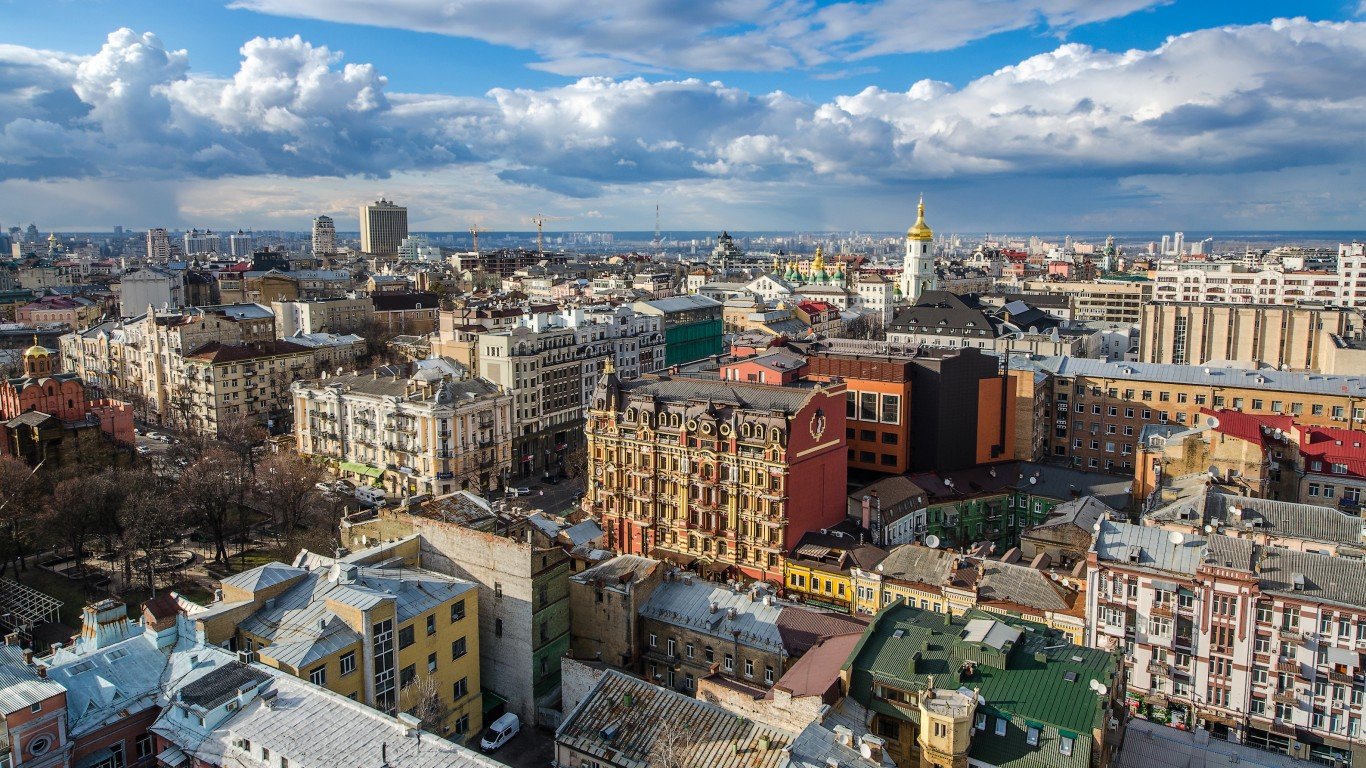
20. Ukraine
> Russian oil imports: 27.8% of all oil imports and domestic production
> Total value of Russian oil imports: $1.4 billion
> Total value of domestic oil production: $936.5 million
> UN resolution vote to condemn Russian invasion of Ukraine: In favor
Ukraine has become dependent on Russian oil imports because the nation’s oil infrastructure has decayed as the result of underinvestment, lack of modernization, corruption, and neglect. Russia, which had been a medium-sized supplier of oil to Ukraine, has become a significant exporter of oil to Ukraine.
[in-text-ad]

19. Netherlands
> Russian oil imports: 28.0% of all oil imports and domestic production
> Total value of Russian oil imports: $16.0 billion
> Total value of domestic oil production: $1.4 billion
> UN resolution vote to condemn Russian invasion of Ukraine: In favor
At $16 billion, the Netherlands imports the most Russian oil of any country on the list. The Low Country is a larger refining and trading center for Europe, with large amounts of oil transiting through the port at Rotterdam.
The Netherlands has been increasing imports of oil from Russia since the beginning of the 21st century. In 2000, the share of Russian oil as a percentage of the total volume of imported crude oil was about 6%. Now it is about 28%. Dutch Prime Minister Mark Rutte said in March that EU countries are too dependent on Russian oil and should begin deleveraging from that dependency “as speedily as possible.”

18. Georgia
> Russian oil imports: 28.8% of all oil imports and domestic production
> Total value of Russian oil imports: $159.4 million
> Total value of domestic oil production: $4.8 million
> UN resolution vote to condemn Russian invasion of Ukraine: In favor
The former Soviet republic invaded by Russia in 2008 voted in favor of a U.N. resolution condemning the Russian invasion of Ukraine. Russia’s invasion of Georgia was predicated on its quest to control energy supplies exiting the Caspian Sea to European markets and beyond.
In the 1990s, President Bill Clinton backed the construction of an alternative pipeline from Baku in Azerbaijan to Tbilisi in Georgia and the Mediterranean coast in Turkey. Before this pipeline was built, Russia had controlled pipelines in the region that carried oil.

17. Turkey
> Russian oil imports: 30.0% of all oil imports and domestic production
> Total value of Russian oil imports: $3.4 billion
> Total value of domestic oil production: $1.2 billion
> UN resolution vote to condemn Russian invasion of Ukraine: In favor
Turkey, which imports $3.4 billion worth of oil from Russia, is becoming an increasingly important transit hub for oil and natural gas supplies from central Asia, Russia, and the Middle East to Europe and other markets. Turkey has few domestic sources of oil and imports a large share of its oil, most of it from Iran and Iraq. Those sources of oil have risen in recent years, and imports from Russia have declined.
[in-text-ad-2]

16. Hungary
> Russian oil imports: 31.7% of all oil imports and domestic production
> Total value of Russian oil imports: $1.2 billion
> Total value of domestic oil production: $567.4 million
> UN resolution vote to condemn Russian invasion of Ukraine: In favor
Hungary is one of the beneficiaries of the Druzhba (Friendship) pipeline, which originates in central Russia. The pipeline moves 1 million barrels per day to refineries in Poland, Germany, Slovakia, and the Czech Republic.
At the EU summit in Brussels in March, Hungarian Prime Minister Viktor Orban backed the organization’s plans to reduce dependency on Russian energy by 2027 but did not support sanctions pertaining to the energy sector. “The Hungarian economy just cannot work without Russian fossil fuels,” he said.
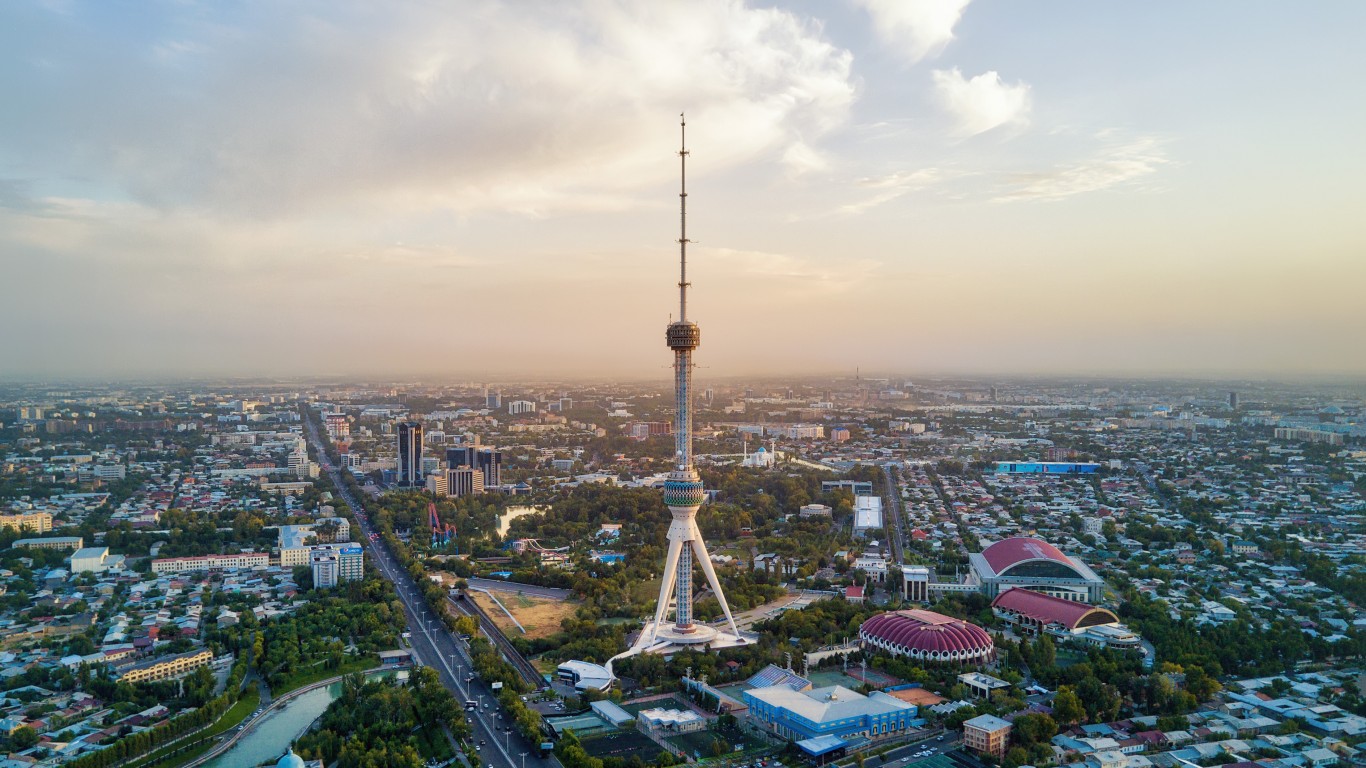
15. Uzbekistan
> Russian oil imports: 40.9% of all oil imports and domestic production
> Total value of Russian oil imports: $373.6 million
> Total value of domestic oil production: $124.5 million
> UN resolution vote to condemn Russian invasion of Ukraine: Abstained
After China, Russia is the second-biggest trading partner of the former Soviet republic, which is located in central Asia. Uzbekistan officials said the government will not recognize the independence of the separatist regions in eastern Ukraine, one of the reasons Russia claims to have invaded Ukraine, though the government has yet to publicly condemn the incursion. Russia plays an important role in the energy sectors of central Asia.
[in-text-ad]

14. Estonia
> Russian oil imports: 43.6% of all oil imports and domestic production
> Total value of Russian oil imports: $677.3 million
> Total value of domestic oil production: $350.9 million
> UN resolution vote to condemn Russian invasion of Ukraine: In favor
Estonia is one of the Baltic states that heavily relies on Russian oil. Estonian Prime Minister Kaja Kallas has not been specific about sanctions on Russia’s oil and gas. Kallas has said that European leaders must be “honest” with their citizens about the effects EU sanctions against Russia might have on daily lives.

13. Bulgaria
> Russian oil imports: 43.8% of all oil imports and domestic production
> Total value of Russian oil imports: $912.4 million
> Total value of domestic oil production: $91.9 million
> UN resolution vote to condemn Russian invasion of Ukraine: In favor
Because Bulgaria is very dependent on its energy supplies from Russia, the Balkan country is reluctant to join any EU-led energy sanctions against Russia. The nation’s only oil refinery is owned by Russia’s Lukoil. Bulgaria may seek an exemption from EU sanctions on Russian oil and gas imports. Prime minister Kiril Petkov has said Bulgaria must diversify its energy suppliers.
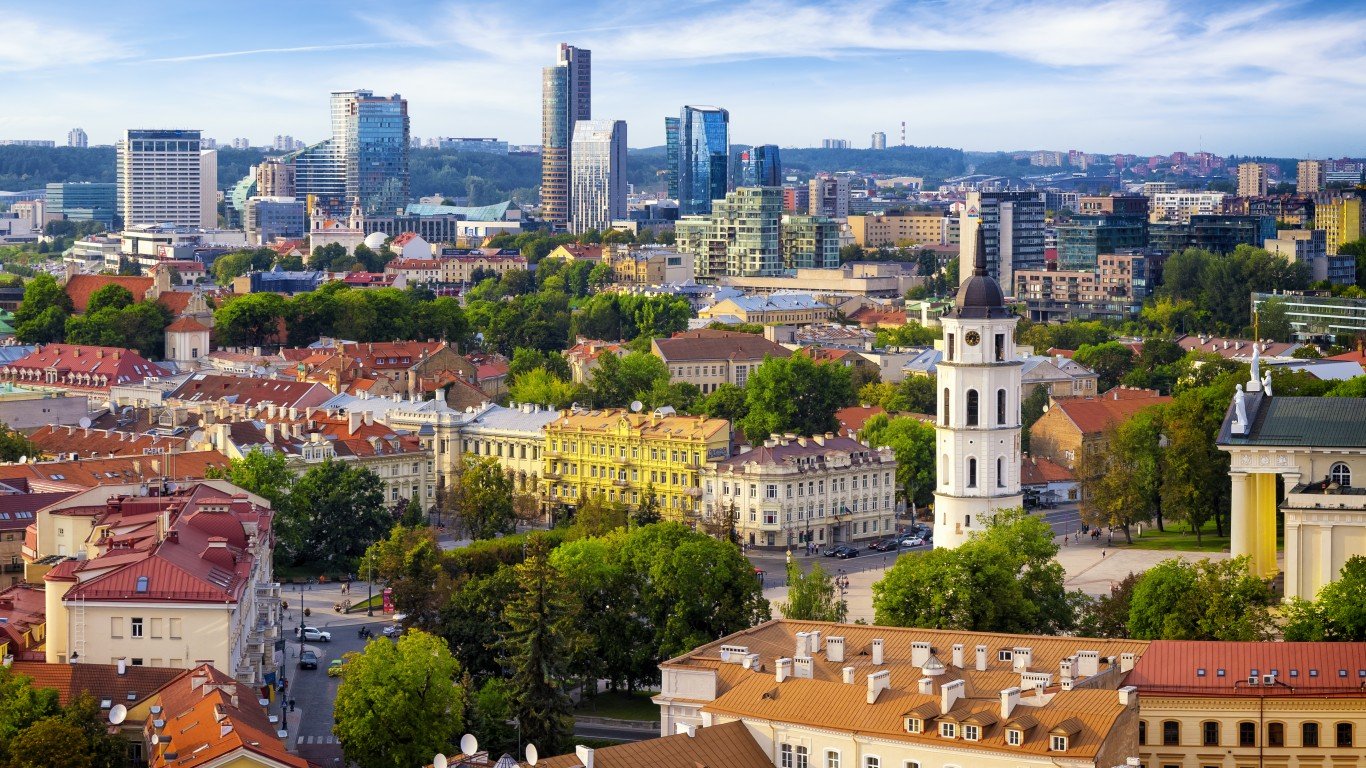
12. Lithuania
> Russian oil imports: 45.6% of all oil imports and domestic production
> Total value of Russian oil imports: $1.0 billion
> Total value of domestic oil production: $130.2 million
> UN resolution vote to condemn Russian invasion of Ukraine: In favor
The Baltic countries, including Lithuania, have made strong comments about sanctions against Russia but have not backed up the rhetoric with actions. During a joint news conference with U.S. Secretary of State Anthony Blinken, Lithuanian Foreign Minister Gabrielius Landsbergis supported an embargo on Russian energy on March 7. In 2019, Russia supplied 63% of Lithuania’s oil imports and Prime Minister Ingrida Šimonytė has stated that that figure has decreased since then.
[in-text-ad-2]

11. Malta
> Russian oil imports: 53.5% of all oil imports and domestic production
> Total value of Russian oil imports: $1.9 billion
> Total value of domestic oil production: $0
> UN resolution vote to condemn Russian invasion of Ukraine: In favor
According to a Reuters report on April 1, maritime fuel sellers have ceased serving vessels flying the Russian flag at major European hubs, including Spain, Gibraltar, and Malta, the island nation south of Sicily in the Mediterranean Sea. This is a major setback to Russian tankers that refuel in the Mediterranean after leaving Baltic sea ports and heading to Asia. Malta produces no oil and is completely dependent on oil imports. It consumes 47,000 barrels of oil per day.
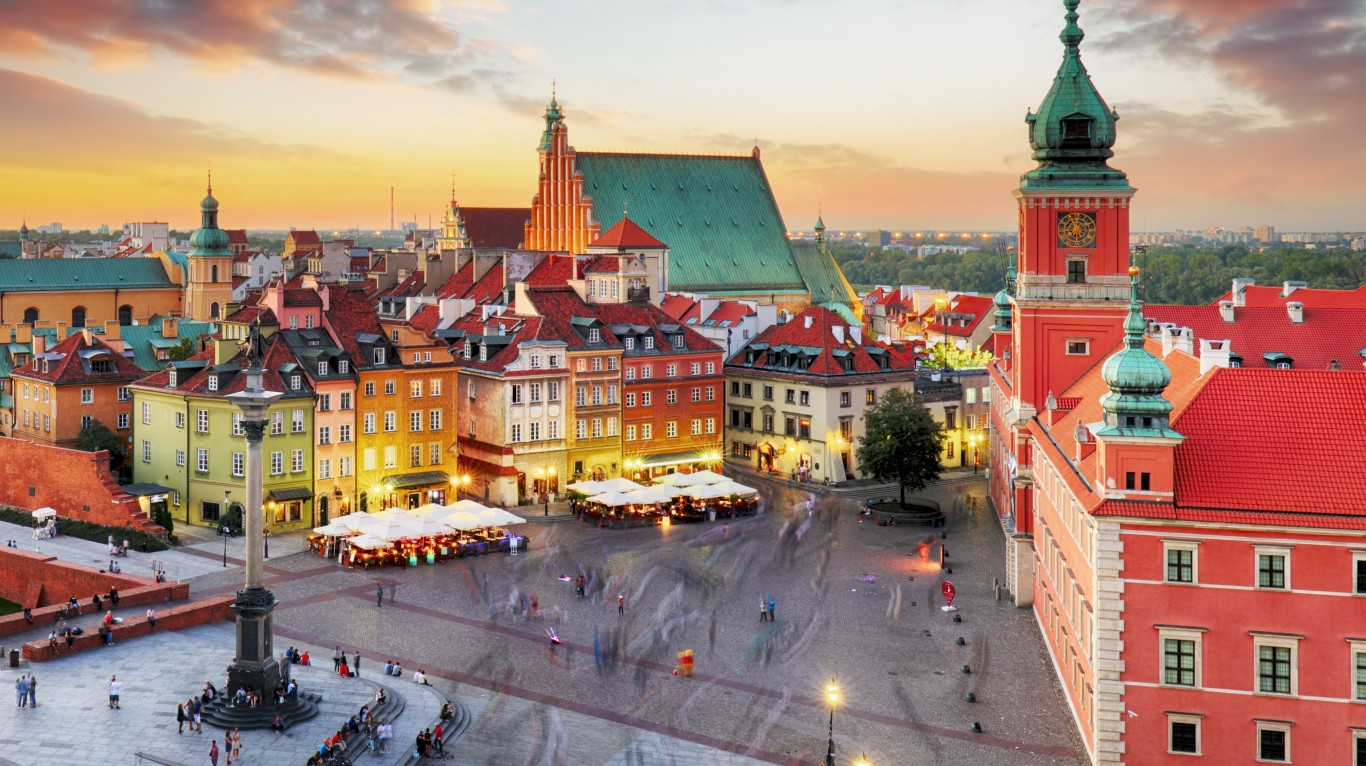
10. Poland
> Russian oil imports: 54.9% of all oil imports and domestic production
> Total value of Russian oil imports: $5.0 billion
> Total value of domestic oil production: $604.4 million
> UN resolution vote to condemn Russian invasion of Ukraine: In favor
Poland, one of the biggest users of Russian oil, has taken steps to wean itself off that import. Polish Prime Minister Mateusz Morawiecki said on March 30 that his country wants to stop using Russian oil by the end of this year. Morawiecki added that shifting to renewable energies would help Poland become independent from Russian energy.
Poland’s leading refiner, PKN Orlen, has contracts with Russian oil companies Rosneft and Tatneft that expire at the end of 2022 and 2024, respectively. The Eastern European nation has boosted oil purchases from Saudi Arabia. Other nations that could supply oil to Poland include Norway, the U.S., Iran, and Venezuela.
[in-text-ad]
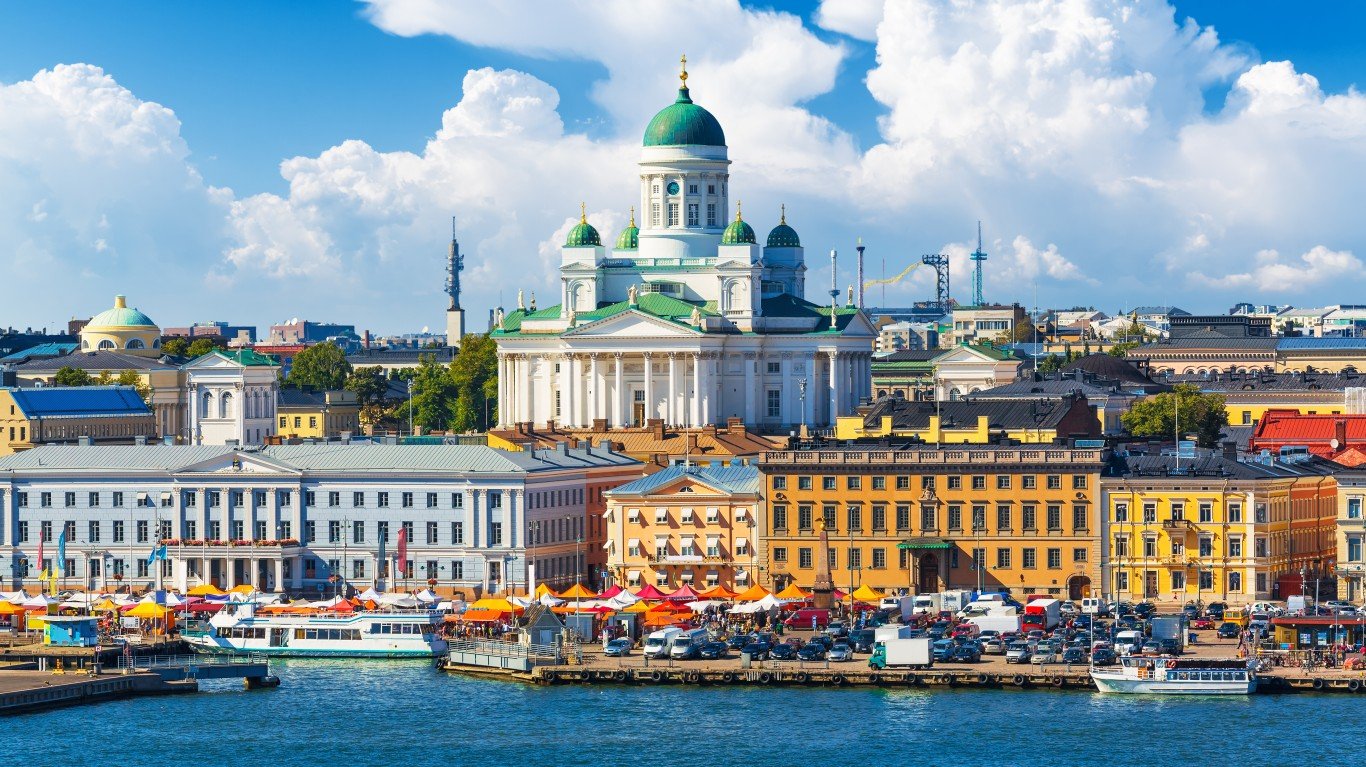
9. Finland
> Russian oil imports: 57.6% of all oil imports and domestic production
> Total value of Russian oil imports: $3.4 billion
> Total value of domestic oil production: $245.2 million
> UN resolution vote to condemn Russian invasion of Ukraine: In favor
Finland, which imports more than 50% of its oil from Russia, voted to condemn the Russian invasion of Ukraine. The Nordic country treads carefully in demanding full-blown sanctions against Russia given the fact that its massive neighbor to the east attacked it in November 1939, starting the so-called Winter War. Finland is a member of the European Union but is not a member of NATO. Finland has hydropower and natural gas relationships with Russia.
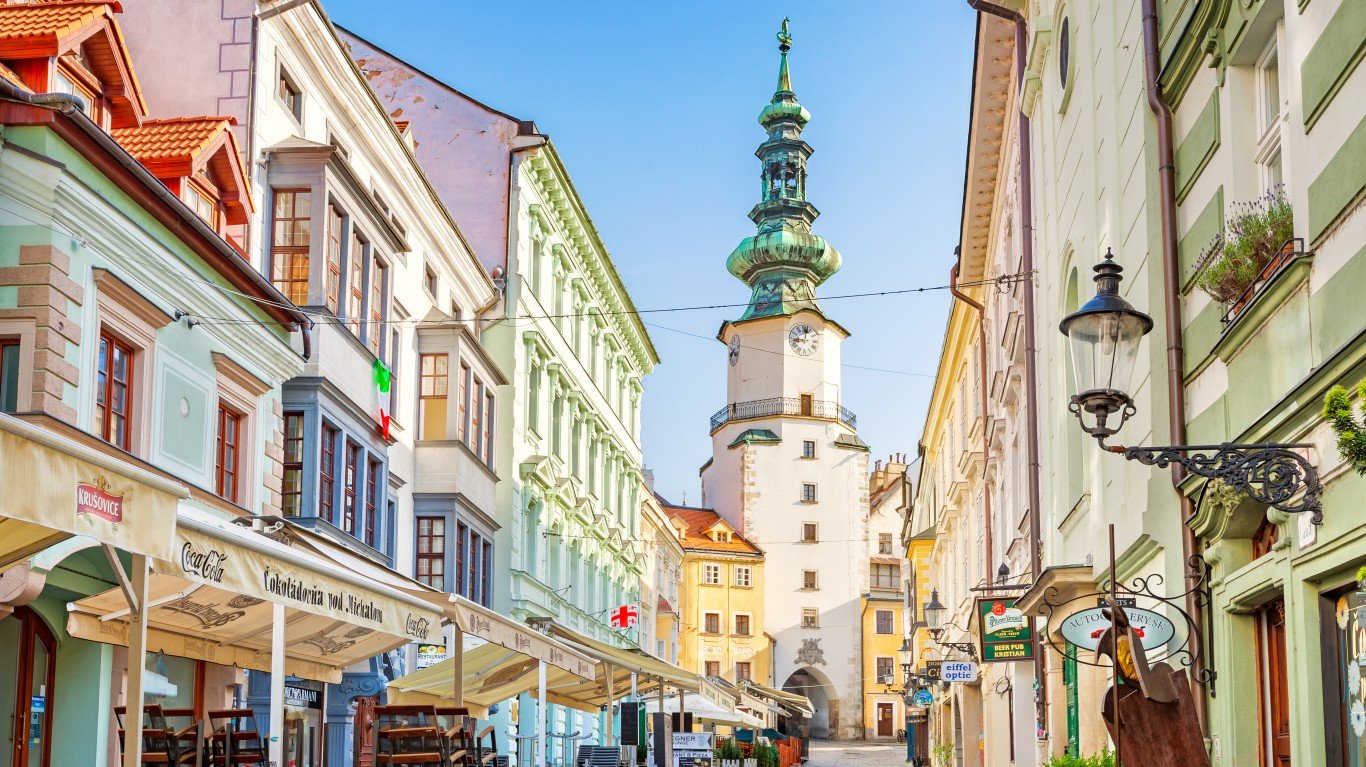
8. Slovakia
> Russian oil imports: 62.3% of all oil imports and domestic production
> Total value of Russian oil imports: $1.5 billion
> Total value of domestic oil production: $87.9 million
> UN resolution vote to condemn Russian invasion of Ukraine: In favor
Slovakia, the eastern part of the former Czechoslovakia, is the central European nation most dependent on Russian oil. Though Slovakia voted in favor of the U.N. resolution to condemn the Russian invasion of Ukraine, Slovak leaders such as Economy Minister Richard Sulik believe a ban on Russian energy imports would be devastating for the Slovak economy.
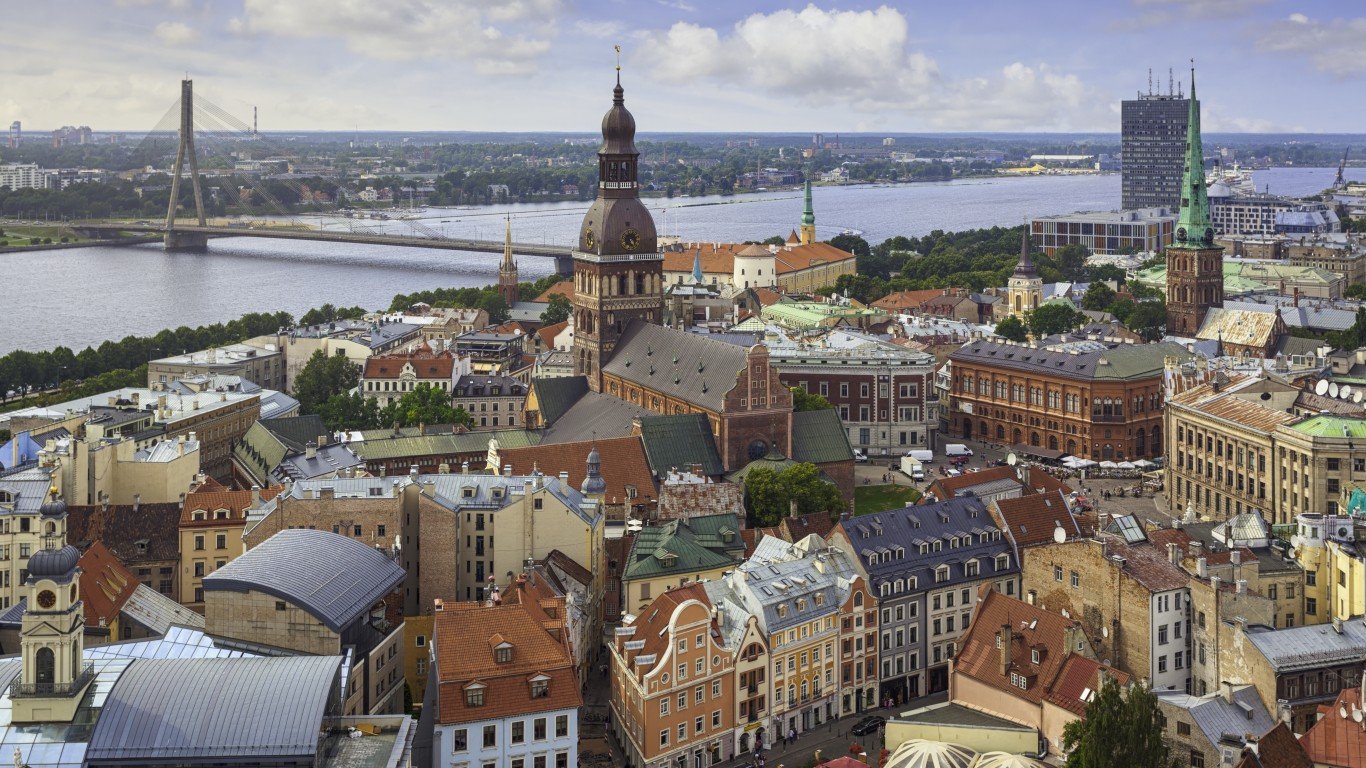
7. Latvia
> Russian oil imports: 64.1% of all oil imports and domestic production
> Total value of Russian oil imports: $1.2 billion
> Total value of domestic oil production: $24.4 million
> UN resolution vote to condemn Russian invasion of Ukraine: In favor
In an interview on Bloomberg Television, Latvian President Egils Levits said his nation will rely less on Russian energy. Levits supports sanctions and considers them a cost for the country’s freedom and independence. “Latvia has decided to cut energy dependence on Russia as soon as possible,” he said. Latvia also imports 90% of its natural gas from Russia.
[in-text-ad-2]

6. Mongolia
> Russian oil imports: 66.4% of all oil imports and domestic production
> Total value of Russian oil imports: $696.1 million
> Total value of domestic oil production: $269.0 million
> UN resolution vote to condemn Russian invasion of Ukraine: Abstained
Mongolia, a landlocked nation located between China and Russia, abstained from the U.N. resolution vote to condemn Russia’s invasion of Ukraine. In October, Mongolian representatives met with Ukrainian business and government leaders to discuss how to improve the business environment between the two countries. The Russian invasion has complicated that emerging relationship, particularly because Mongolia imports most of its oil from Russia.
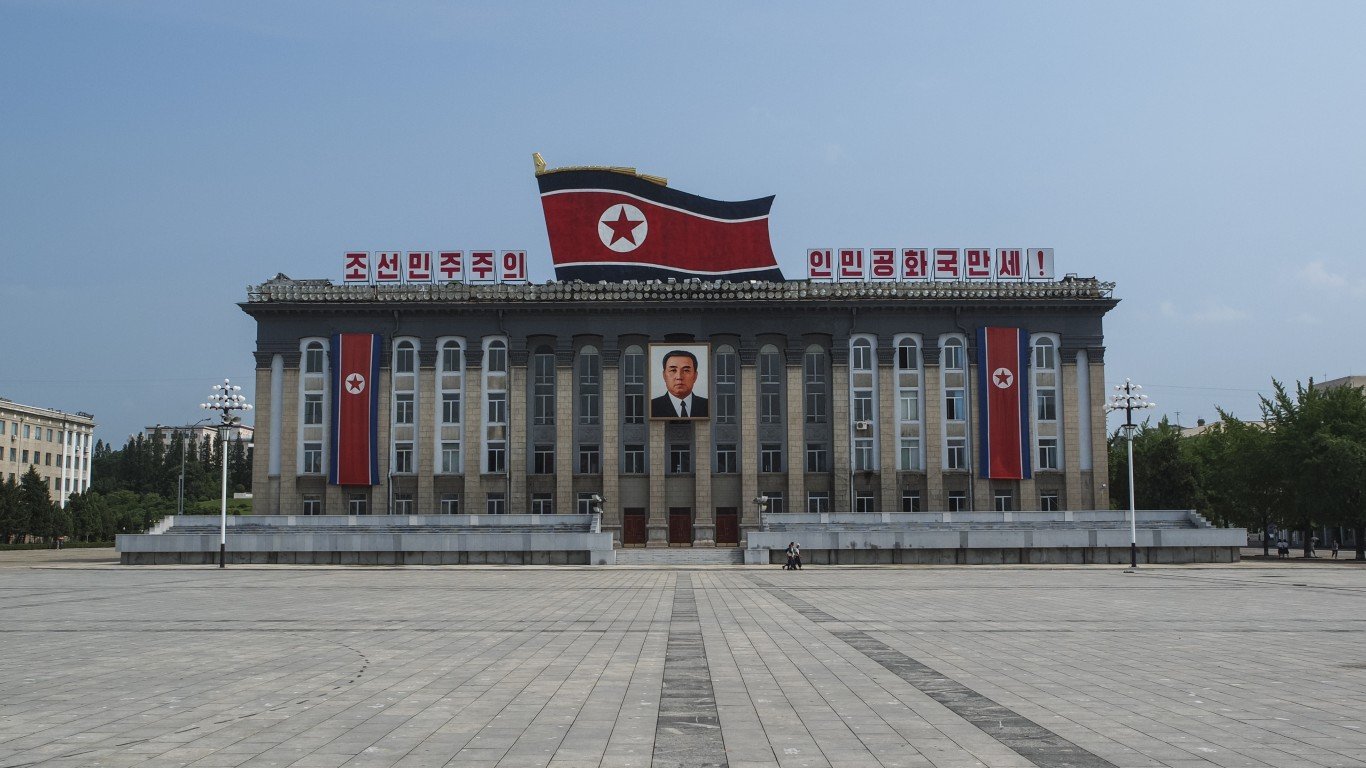
5. North Korea
> Russian oil imports: 67.9% of all oil imports and domestic production
> Total value of Russian oil imports: $9.5 million
> Total value of domestic oil production: $1.6 million
> UN resolution vote to condemn Russian invasion of Ukraine: Against
North Korea, which relies heavily on Russian energy sources, voted against the U.N. resolution to condemn Russia’s invasion of Ukraine. After the Soviet Union collapsed in the early 1990s, North Korea was hurt by the switch to market-driven oil prices from a socialist price-controlled platform. If export markets are shut off to Russia, North Korea might benefit by getting more Russian oil at a discount. Before its demise, the Soviet Union had constructed oil-processing facilities in North Korea that are now obsolete.
[in-text-ad]
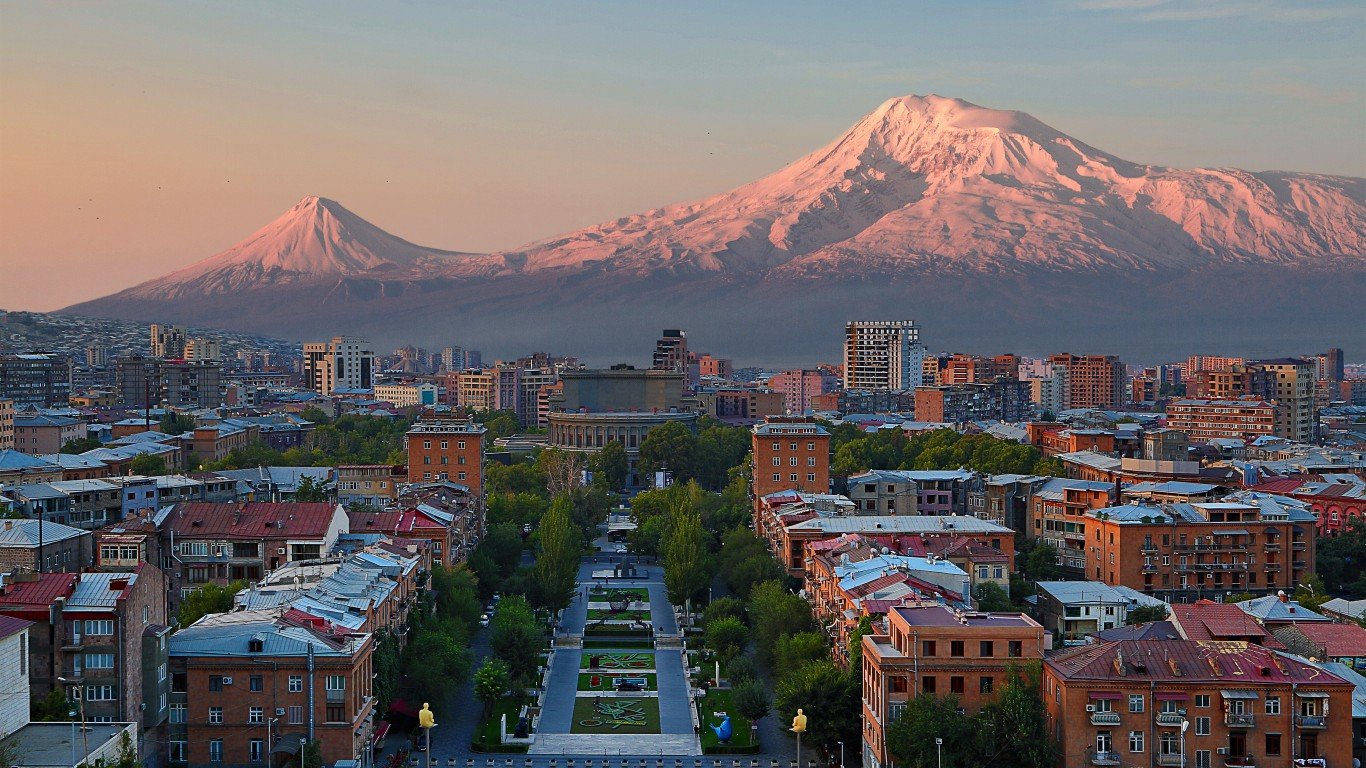
4. Armenia
> Russian oil imports: 72.1% of all oil imports and domestic production
> Total value of Russian oil imports: $160.7 million
> Total value of domestic oil production: $0
> UN resolution vote to condemn Russian invasion of Ukraine: Abstained
Sanctions imposed on Russia over its invasion of Ukraine would dramatically lower the gross domestic product of Armenia, according to Armenian media site PanArmenian.net. The country’s central bank lowered its projections for Armenia’s GDP growth in 2022 from 5.3% to 1.6%. Armenia has no proven oil and natural gas reserves and imports 72% of its oil from Russia. Armenia abstained from the U.N. resolution vote to condemn the Russian invasion of Ukraine.

3. Tajikistan
> Russian oil imports: 73.3% of all oil imports and domestic production
> Total value of Russian oil imports: $160.7 million
> Total value of domestic oil production: $4.8 million
> UN resolution vote to condemn Russian invasion of Ukraine: Abstained
Like the central Asian nations that share a border with Russia, Tajikistan has been reluctant to criticize Russia’s invasion of Ukraine. Tajikistan, like its neighbors, is very reliant on Russian energy. The Russian labor market employs a large number of Tajikistan migrants who send remittances back to their native country. These remittances account for more than one-fourth of Tajikistan’s gross domestic product. Tajikistan is also a member of various collective security agreements that include Russia, and Russia has a military presence within the country.
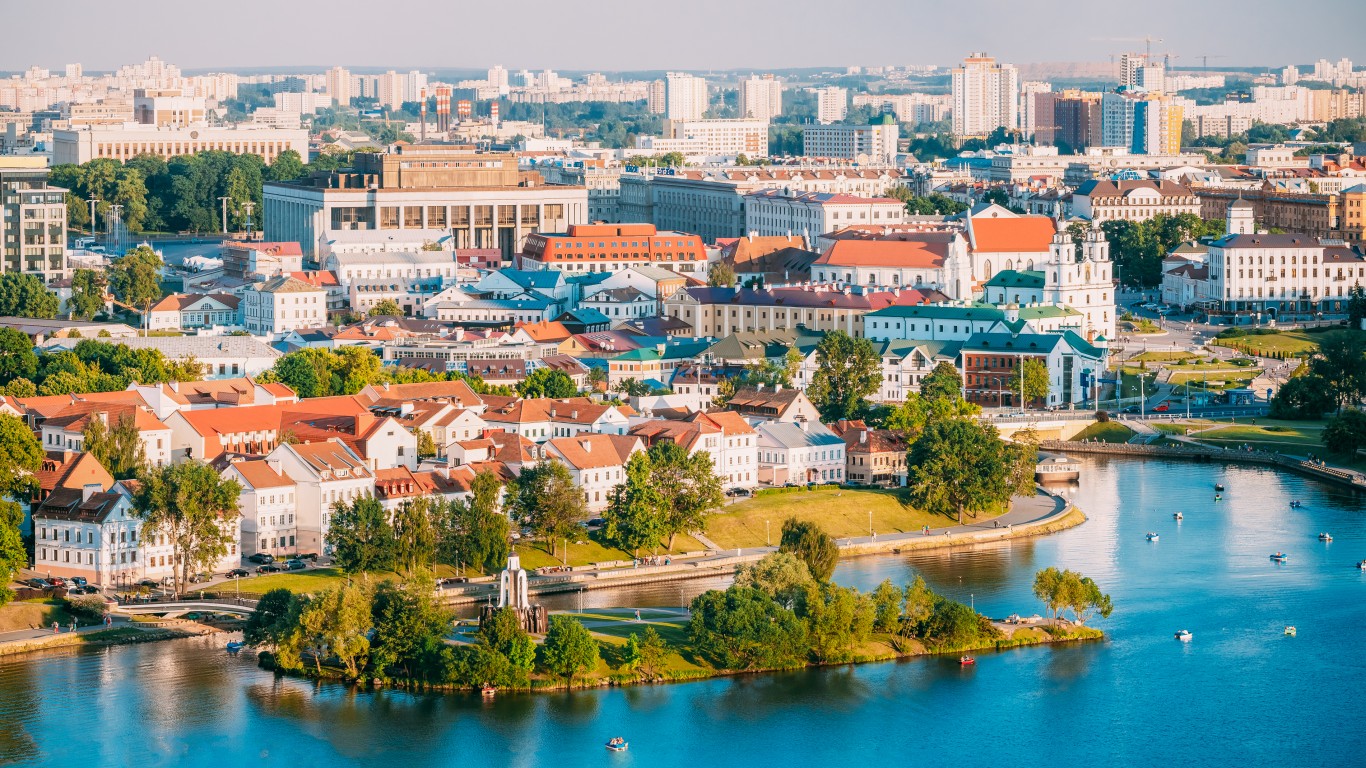
2. Belarus
> Russian oil imports: 78.9% of all oil imports and domestic production
> Total value of Russian oil imports: $3.6 billion
> Total value of domestic oil production: $529.7 million
> UN resolution vote to condemn Russian invasion of Ukraine: Against
Belarus, the closest ally to Russia since the collapse of the Soviet Union, and officials said on April 2 that the country would pay Russia in rubles for gas and oil supplies. Belarus Prime Minister of the Republic Roman Golovchenko said the nation had been attempting to move away from paying for energy in dollars and that the switch would be economically advantageous to Belarus. The U.S. imposed sanctions on Belarus in early March for supporting Russia’s invasion of Ukraine.
[in-text-ad-2]
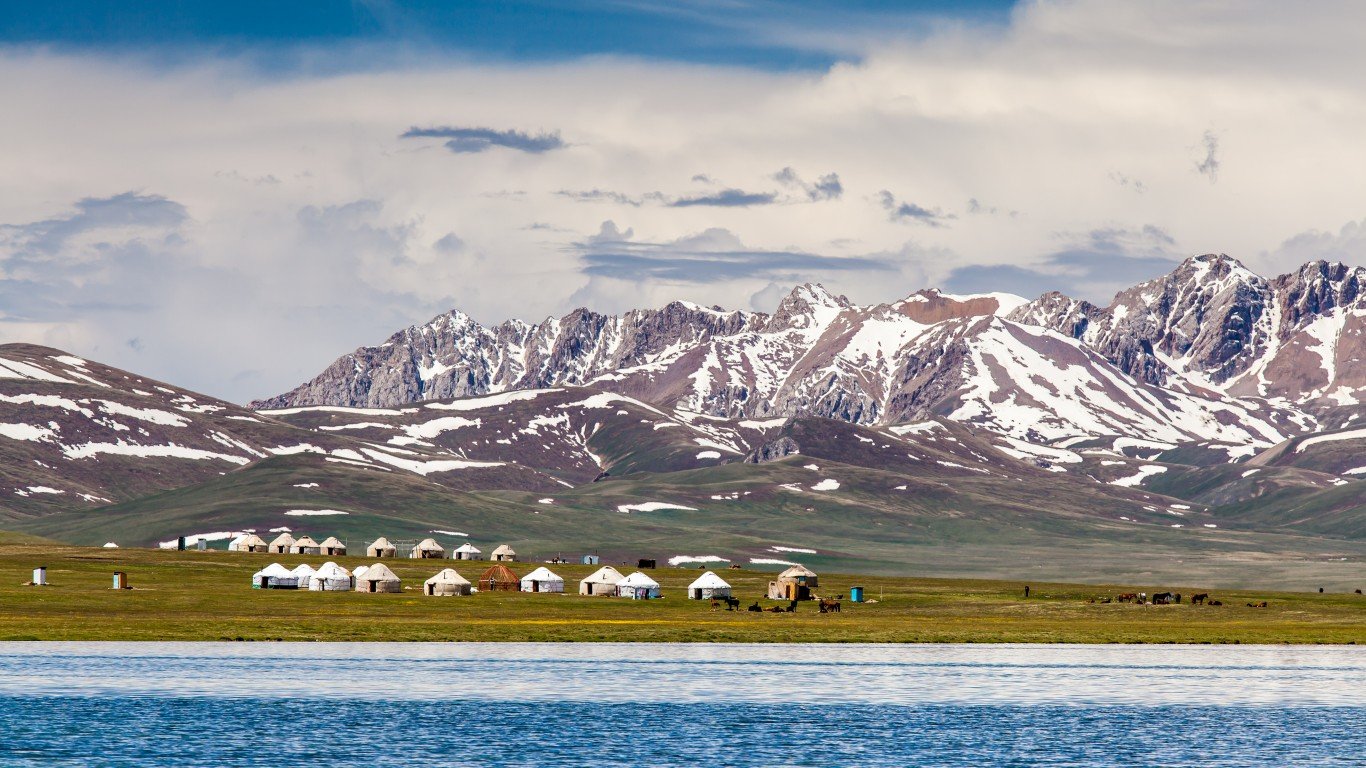
1. Kyrgyzstan
> Russian oil imports: 83.5% of all oil imports and domestic production
> Total value of Russian oil imports: $427.9 million
> Total value of domestic oil production: $11.3 million
> UN resolution vote to condemn Russian invasion of Ukraine: Abstained
Kyrgyzstan is the nation most reliant on energy supplies from Russia. The mountainous, landlocked central Asian country abstained from the U.N. vote to condemn the Russian invasion of Ukraine. Like other former Soviet republics in central Asia, Kyrgyzstan has been sending migrant workers to Russia to work in that country’s energy sector, and these workers send remittances back to their home country. According to the Foreign Policy Research Institute, about 650,000 laborers in Russia are from Kyrgyzstan, about one-tenth of the population.
Kyrgyzstan is a member of the Russian-led Eurasian Economic Union. Because of this affiliation, Kyrgyz citizens have access to the Russian health care system, and earnings from the work they do in Russia are counted toward their pensions.
Methodology
To determine the countries that are most dependent on Russian oil, 24/7 Tempo reviewed data on oil imports from the Trade Statistics Branch of the United Nations Statistics Division curated by the Observatory of Economic Complexity, an online data visualization and distribution platform, and oil production from the U.S. Energy Information Administration. Countries were ranked based on the total value of imports of crude oil and refined oil from Russia as a percentage of the sum total of all crude oil and refined oil imports and domestic oil production in 2020.
Data on domestic oil production from the EIA was converted from barrels per day to U.S. dollars using the average annual price of Brent crude oil in 2020. Data on each country’s vote to condemn Russia came from a special emergency United Nations Security Council session on March 2, 2022, convened to pass a motion demanding Russia stop its offensive in Ukraine and immediately withdraw all troops.
Take This Retirement Quiz To Get Matched With A Financial Advisor (Sponsored)
Take the quiz below to get matched with a financial advisor today.
Each advisor has been vetted by SmartAsset and is held to a fiduciary standard to act in your best interests.
Here’s how it works:
1. Answer SmartAsset advisor match quiz
2. Review your pre-screened matches at your leisure. Check out the
advisors’ profiles.
3. Speak with advisors at no cost to you. Have an introductory call on the phone or introduction in person and choose whom to work with in the future
Take the retirement quiz right here.
Thank you for reading! Have some feedback for us?
Contact the 24/7 Wall St. editorial team.

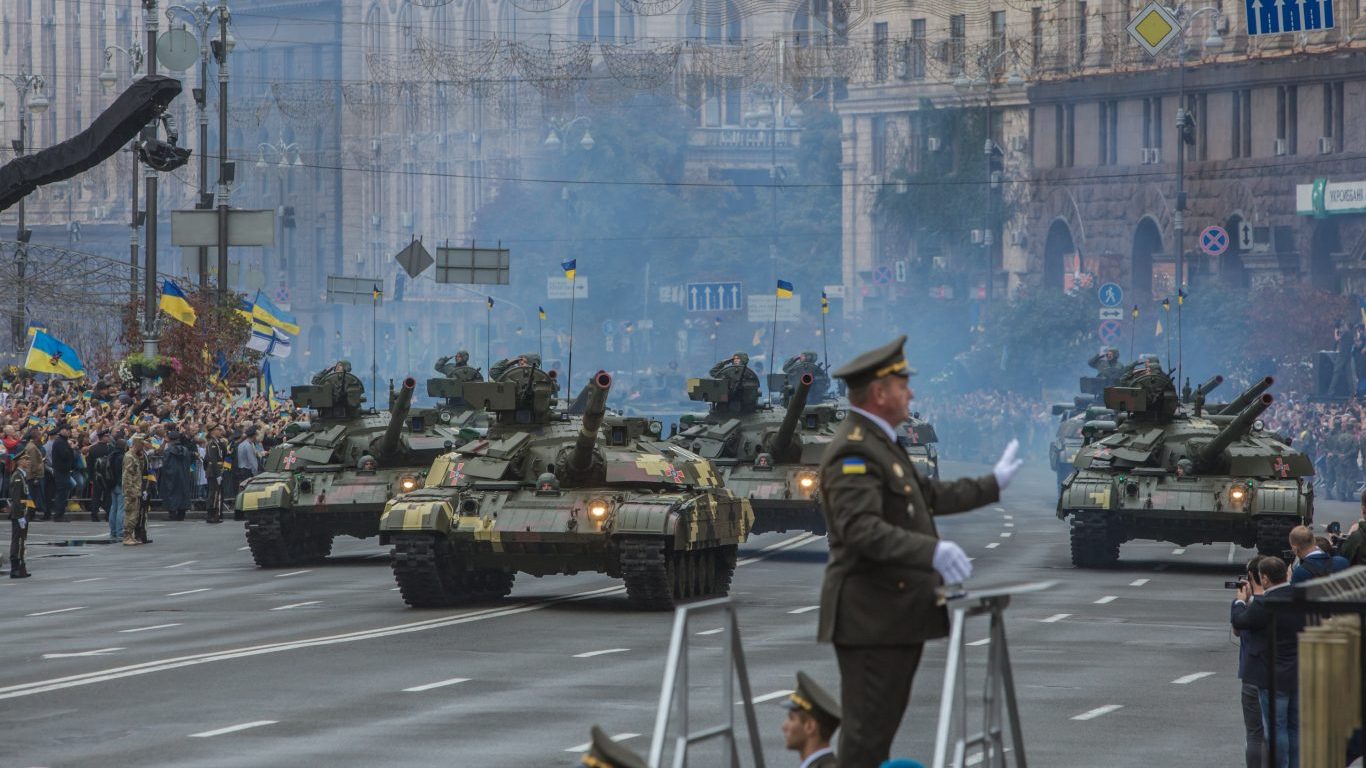 24/7 Wall St.
24/7 Wall St.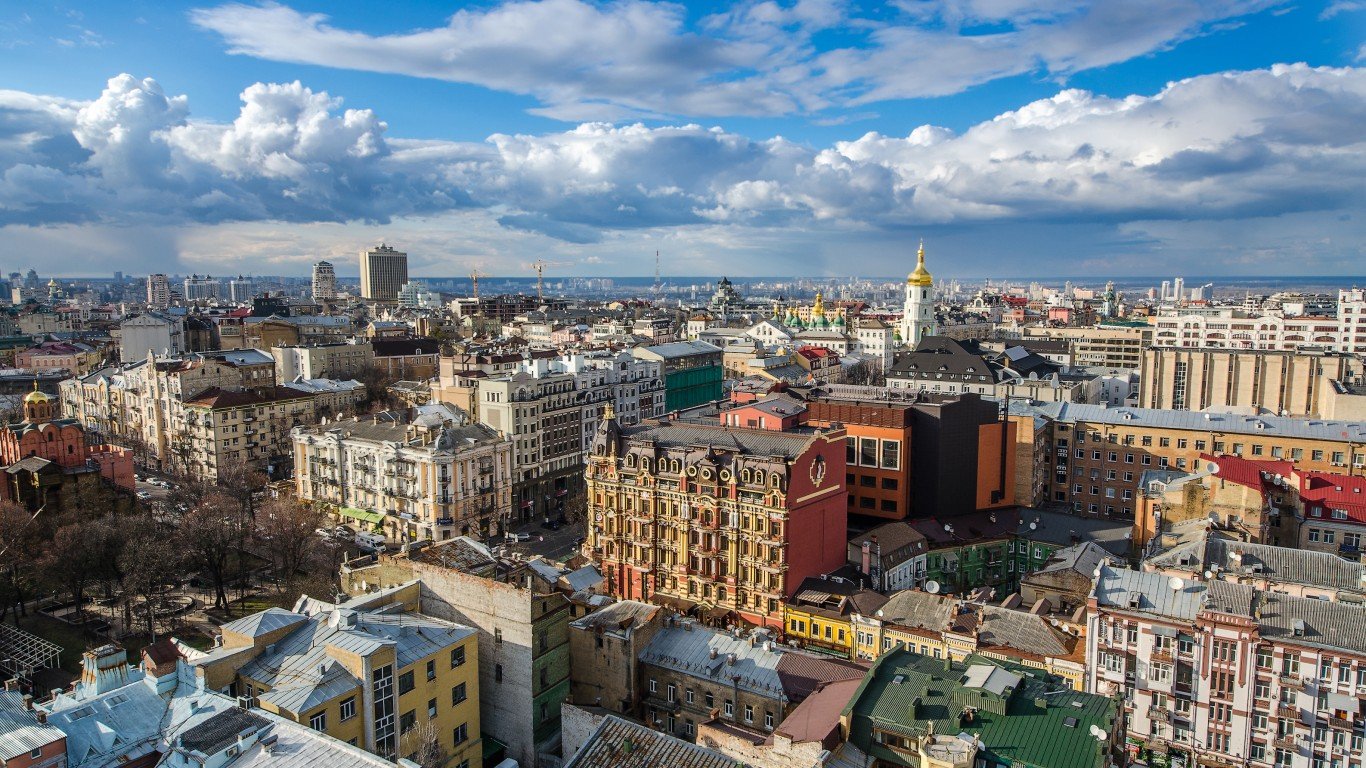 24/7 Wall St.
24/7 Wall St. 24/7 Wall St.
24/7 Wall St.


